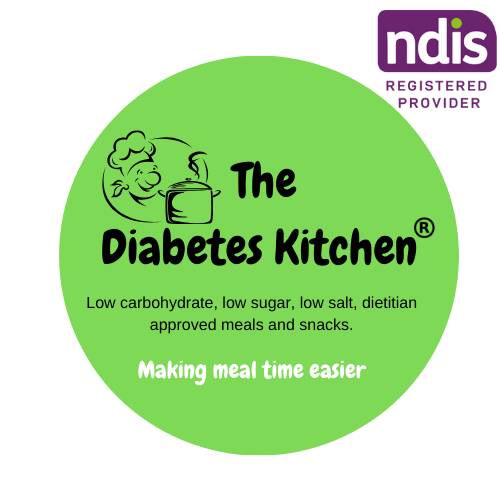Debunking Common Misconceptions for a Healthier Tomorrow
Living with diabetes can often mean navigating a labyrinth of misconceptions and myths that can mislead, confuse, or even harm. In this blog post, we’ll tackle some of the most pervasive myths surrounding diabetes, separating fact from fiction so you can take control of your journey with confidence. Whether you’re newly diagnosed or have lived with diabetes for years, empowering yourself with accurate information is key to thriving—not just surviving.
Myth 1: Only Overweight People Get Diabetes
One of the most widespread misunderstandings about diabetes is the belief that only overweight or obese individuals are at risk of developing the condition. While body weight can play a role in Type 2 diabetes, it’s not the sole factor. Genetics, age, ethnicity, and lifestyle choices all contribute to an individual’s risk. Additionally, Type 1 diabetes is an autoimmune condition unrelated to weight—affecting people of all body types.
Focusing solely on weight can lead to harmful stigma and oversimplify the reality of diabetes. Understanding the multifaceted causes of diabetes allows for more effective prevention and management strategies tailored to each individual’s needs.
Myth 2: Eating Too Much Sugar Causes Diabetes
It’s an understandable assumption—after all, diabetes is often associated with blood sugar levels. However, the truth is more nuanced. Type 1 diabetes occurs due to an autoimmune response, and Type 2 diabetes develops through a combination of genetic and lifestyle factors. While excess sugar consumption can contribute to weight gain and obesity, which may increase the risk of Type 2 diabetes, sugar itself isn’t the direct cause.
The good news? You don’t need to ban sugar entirely from your diet. Moderation and mindful eating are the keys to maintaining a balanced lifestyle. Diabetics can still enjoy occasional treats as part of a well-managed diet.
Myth 3: People with Diabetes Can’t Eat Carbs
Carbohydrates often get a bad reputation when it comes to diabetes management, but labeling them as forbidden isn’t helpful. Carbs are an essential source of energy for the body and brain, and their quality matters more than the quantity. Complex carbohydrates found in whole grains, vegetables, and legumes provide valuable nutrients and fiber, which can help regulate blood sugar levels.
Rather than avoiding carbs altogether, focus on choosing healthier options and understanding portion sizes. With smart planning, you can enjoy a variety of foods while keeping your blood sugar in check.
Myth 4: Insulin Is a Sign of Failure
Being prescribed insulin can feel daunting, and many people perceive it as a sign that their diabetes is “worsening.” This couldn’t be farther from the truth. Insulin isn’t a punishment; it’s a life-saving medication for those who need it. For people with Type 1 diabetes, insulin is essential from day one, as the pancreas no longer produces it naturally. For people with Type 2 diabetes, insulin may become necessary over time due to changes in the body’s ability to manage blood sugar.
Far from being a failure, using insulin is a proactive step in controlling your diabetes. Modern advancements have also made insulin administration easier and more convenient than ever before.
Myth 5: Diabetes Is a Death Sentence
Though diabetes requires ongoing management, it is far from being a death sentence. With proper care, people with diabetes can lead long, healthy, and fulfilling lives. Advances in medical treatments, monitoring technology, and awareness have transformed diabetes management, making it more effective and empowering.
It’s crucial to build a strong support system that includes healthcare professionals, friends, and family. Educating yourself and others about diabetes fosters understanding and promotes a proactive approach to your health.
Myth 6: Diabetics Must Follow a “Special Diet”
People often envision diabetics stuck on a boring, restricted diet devoid of flavor. In reality, diabetic-friendly eating emphasizes balance, variety, and moderation. The key is to focus on nutrient-dense foods, limit added sugars and unhealthy fats, and keep portion sizes in check. This isn’t a “special diet”—it’s simply healthy eating that benefits everyone.
Diabetics can enjoy a wide range of delicious meals, experimenting with spices, textures, and ingredients to keep things exciting. A healthy diet doesn’t have to mean sacrificing enjoyment—it’s about finding what works for you.
Busting Myths for Better Living
Dispelling these myths is more than just setting the record straight—it’s about breaking down barriers and empowering individuals with diabetes to live their best lives.
Misconceptions can create unnecessary fear or shame, but by staying informed, you can overcome them and focus on what truly matters: managing diabetes effectively while thriving emotionally, physically, and socially.
Remember, diabetes management is not one-size-fits-all, so seek out trusted resources and work closely with healthcare professionals to design a plan that suits your unique needs. With the right mindset and approach, you have all the tools necessary to bust myths, navigate challenges, and embrace a life full of possibilities.





